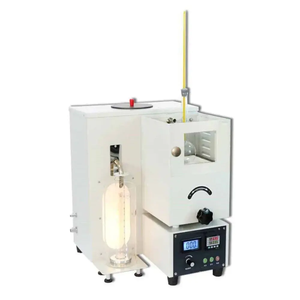Understanding High Boiling Point Solvent
A high boiling point solvent is an essential component in various industrial processes and laboratory applications. Typically defined as solvents that boast boiling points significantly higher than water (100°C or 212°F), these solvents play a critical role in dissolving, extracting, and reacting with different compounds that may otherwise remain inert in lower boiling solvents. This product description explores the different types, applications, and features of high boiling point solvents to help you make informed decisions in your specific use case.
Types of High Boiling Point Solvent
High boiling point solvents come in various types, catering to a wide range of chemical applications. Here are some of the most notable you should know:
- Glycol Ethers: Known for their excellent solubilizing properties, glycol ethers have boiling points ranging from 150°C to 200°C, making them ideal for high-temperature applications.
- Dimethyl Sulfoxide (DMSO): This versatile solvent has a boiling point of 189°C and is frequently used in pharmaceuticals and chemical reactions.
- Phenols: Specific phenolic compounds can serve as high boiling solvents, offering unique reactivity and solubility advantages at elevated temperatures.
- Chlorinated Solvents: These solvents, such as chloroform or carbon tetrachloride, have high boiling points and are commonly used in extraction processes.
Applications of High Boiling Point Solvent
The applications of high boiling point solvents span numerous industries, demonstrating their versatile functionality:
- Pharmaceuticals: High boiling solvents are often used in drug formulation processes, enabling precise control over chemical reactions.
- Chemical Synthesis: They are essential in synthetic reactions requiring elevated temperatures, ensuring complete reactivity and high yield results.
- Extraction Processes: High boiling point solvents facilitate the extraction of complex mixtures, including natural products, oils, and pigments.
- Paint and Coatings: These solvents provide adequate solubility and flow properties for applications that involve coatings that must endure extreme conditions.
Features and Advantages of High Boiling Point Solvent
The unique features and significant advantages of high boiling point solvents make them indispensable in various chemical processes:
- High Temperature Stability: With considerable thermal tolerance, these solvents can withstand prolonged exposure to high temperatures without decomposing.
- Enhanced Solubility: They often dissolve a broader range of substances, including polar and non-polar compounds, allowing for versatile applications.
- Improved Reaction Rates: Their ability to maintain consistent temperatures can accelerate reaction kinetics in many applications.
- Safety Considerations: Many high boiling point solvents are designed to minimize flammability risks, enhancing workplace safety.
How to Choose the Right High Boiling Point Solvent
Choosing the right high boiling point solvent requires careful consideration of several factors to ensure optimal performance:
- Compatibility: Always check whether the solvent is compatible with other chemicals involved in your process.
- Purity Requirements: Select solvents with the necessary purity levels to avoid contamination in sensitive applications.
- Boiling Point: Evaluate the boiling point in relation to your specific thermal requirements to avoid unintended reactions.
- Toxicity and Safety Data: Always reference the safety data sheets (SDS) for each solvent to ensure safe handling and usage.










































































































































































































